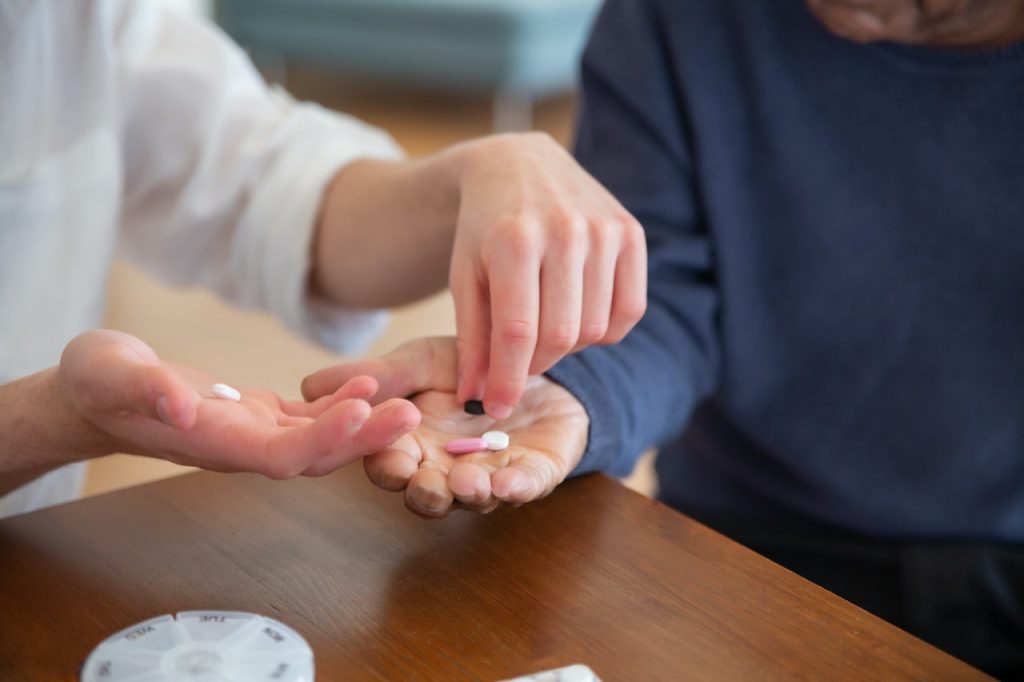
Drug resistance among the elderly is common, particularly for residents in long-term care facilities. Multi-species probiotics may provide a solution for patients prone to repeated infections because of multi-drug resistant gram-negative bacteria.

ABSTRACT/ Residents in long-term care facilities (LTCFs) are frequently colonized by multi-drug resistant gram-negative bacteria, putting them at risk for subsequent infections. The researchers aimed to evaluate the effect of the multispecies probiotic (available in the United States as Omni-Biotics 10 AAD®) on the intestinal and inguinal skin colonization of patients by multidrug-resistant Gram-negative bacteria in LTCFs.
Most attempts to curb gastrointestinal carriage of multidrug-resistant Gram-negatives include oral administration of nonabsorbable antimicrobial agents such as neomycin and polymyxin E. Results have been limited and, worse yet, this leads to the development of additional antimicrobial resistance in colonizing bacteria. Another possibility is fecal microbiota transplantation (FMT), with the administration of healthy donor stool into a patient’s gut. While effective, FMT may not always be feasible for all patients.
This pilot study evaluated the effect of the multispecies probiotic on the intestinal and inguinal skin colonization of patients by multidrug-resistant Gram-negative bacteria in LTCFs in the Geriatric Health Centers Graz, Austria. This probiotic was chosen because of its in vitro characteristics to inhibit growth of intestinal bacteria and its ability to survive a low pH as well as bile environment (see study for more). Earlier clinical observations by one of the authors, suggested efficacy of of this formulation eliminating colonization by multidrug-resistant Acinteobacter baumannii isolates following an outbreak.
Study Methods
Patients received the probiotic formulation twice daily orally or via the enteral feeding tube for 3 months. It consists of 10 different bacterial strains: Enterococcus faecium W54, Lactobacillus acidophilus W55 and W37, L. paracasei W72, L. rhamnosus W71, L. salivarius W24, L. plantarum W62, Bifidobacterium bifidum W23, B. lactis W18, und B. longum W51. Patients were screened for side effects: measuring body temperature daily and daily visits by treating physicians looking for signs and symptoms (including nausea, diarrhea, discomfort, loss of appetite, etc.). Inguinal skin swabs were collected by nursing staff.
Study Outcomes
- The median age of patients was 76 years. Twelve patients completed the pilot study. Intestinal colonization was reduced to 42% of patients 8 weeks after the end of treatment, but increased to 66% 24 weeks after the end of probiotic treatment.
- Colonization of inguinal skin was lowest during probiotic treatment and increased thereafter.
- Fecal microbiome analysis revealed statistically significant increases of the genus Enterococcus comparing start and end of probiotic treatment.
The findings suggest that even the transient changes of the fecal microbiome may influence colonization by MRGN bacteria. “Even though the probiotic strains Lactobacillus rhamnosus and L. paracasei inhibited the growth of various Gram-negative bacteria, including E.coli, Klebsiella spp. and P. aeruginosa, in vitro [39], direct antimicrobial activity of probiotic strains, such as production of toxins or acids to inhibit the growth of other bacteria, are less likely to have played a role in our study,” the researchers wrote.
Other findings of note:
- Two patients who were negative for MRGN bacteria at weeks 20 and 24 were positive for MRGN bacteria in 36 weeks, which had not been detected before in these patients. “This finding suggests a new colonization from the environment of the LTCF. One could speculate that a combination of repeated probiotic treatment and enforced infection control could be a successful strategy for maintaining a decolonized status.”
- The prevalence of inguinal colonization by MRGN bacteria of the skin was lowest during probiotic treatment and increased steadily thereafter. “As most patients were colonized by various different bacteria in the inguinal region that were not found in their intestinal tract, recolonization from the environment is likely to have occurred in addition to colonization from the intestinal tract.”
Conclusion/ “A 12-week course of a multispecies probiotic led to a transient reduction of intestinal colonization 8 weeks after the end of treatment. The findings of our pilot study warrant further research in the area of probiotics and intestinal colonization by multidrug-resistant bacteria.”
Click Here for Full Text Study





